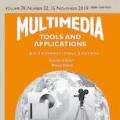Multi-touch attribution (MTA) currently plays a pivotal role in achieving a fair estimation of the contributions of each advertising touchpoint to-wards conversion behavior, deeply influencing budget allocation and advertising recommenda-tion. Previous works attempted to eliminate the bias caused by user preferences to achieve the unbiased assumption of the conversion model. The multi-model collaboration method is not ef-ficient, and the complete elimination of user in-fluence also eliminates the causal effect of user features on conversion, resulting in limited per-formance of the conversion model. This paper re-defines the causal effect of user features on con-versions and proposes a novel end-to-end ap-proach, Deep Causal Representation for MTA (DCRMTA). Our model focuses on extracting causa features between conversions and users while eliminating confounding variables. Fur-thermore, extensive experiments demonstrate DCRMTA's superior performance in converting prediction across varying data distributions, while also effectively attributing value across dif-ferent advertising channels.
翻译:暂无翻译





